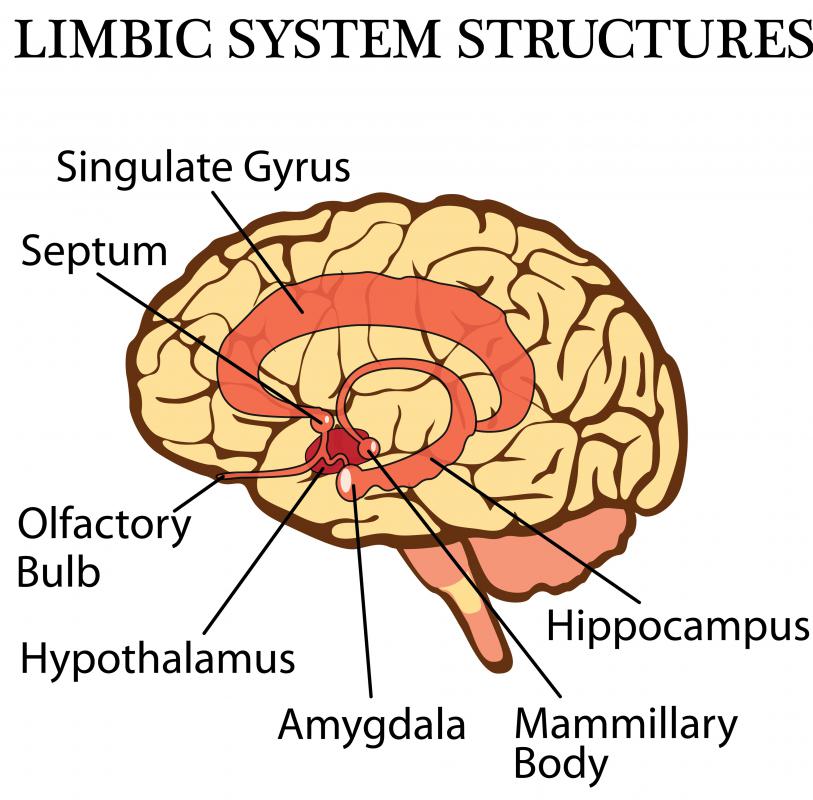At WiseGEEK, we're committed to delivering accurate, trustworthy information. Our expert-authored content is rigorously fact-checked and sourced from credible authorities. Discover how we uphold the highest standards in providing you with reliable knowledge.
What Is the Subthalamus?
The brain is a complex organ split into three separate sections, including the forebrain, midbrain and hindbrain. These three major segments are then divided into “subsections” that all work in harmony so the brain functions as the center for all intelligence of an individual. The subthalamus is a subdivision of the portion called the diencephalon in the forebrain portion of the brain that is situated just superior or above the section referred to as the hypothalamus, and just inferior or below the portion called the thalamus.
The thalamus, located on both sides of the brain, is a double lobed mass of gray matter, a major component of the central nervous system, and is the largest subdivision of the diencephalon. An essential part of the body’s limbic system, involved in the body’s aptitude for survival, the thalamus, and essentially the subthalamus, plays an important role in regulating motor function or movement. This area is also involved in sensory perception, the conscious mental capacity to register, process and act upon sensory input. These functions also make the thalamus and subthalamus regions of the brain play an integral part in the body’s sleep-wake cycle, or the ability to control when the body is at rest or when the consciousness is activated to sort out the onslaught of sensory stimuli during periods of being awake.

These sensory signals include those received through the auditory or hearing system, and the visual or sight system. Signals are also obtained through the somatosensory system, the mode by which things like temperature, touch, proprioception or the body’s ability to know where it is in space, and pain, also referred to as nociception. The thalamus, and thus the subthalamus, then communicates with the cerebral cortex, the area of the brain often referred to as gray matter, which processes the information and is responsible for producing a quick, appropriate response.

Certain medical conditions, such as a stroke, where the blood supply to the brain is impaired or interrupted, or some type of injury to the thalamus or subthalamus region of the brain from a serious head injury or genetic disorder can cause problems with proper motor abilities, sensation, mood or sleep patterns. A stroke, for example, can lead to changes in sensation or movement, typically on the opposite side of the body to where the interruption occurred. It can also lead to mood disorders. Damage to the thalamus or subthalamus regions of the brain can also result in the inability of the body to achieve or maintain sleep. Total, chronic insomnia where the body has lost the ability to sleep at all is a serious medical condition and may lead to death.
AS FEATURED ON:
AS FEATURED ON:















Discuss this Article
Post your comments